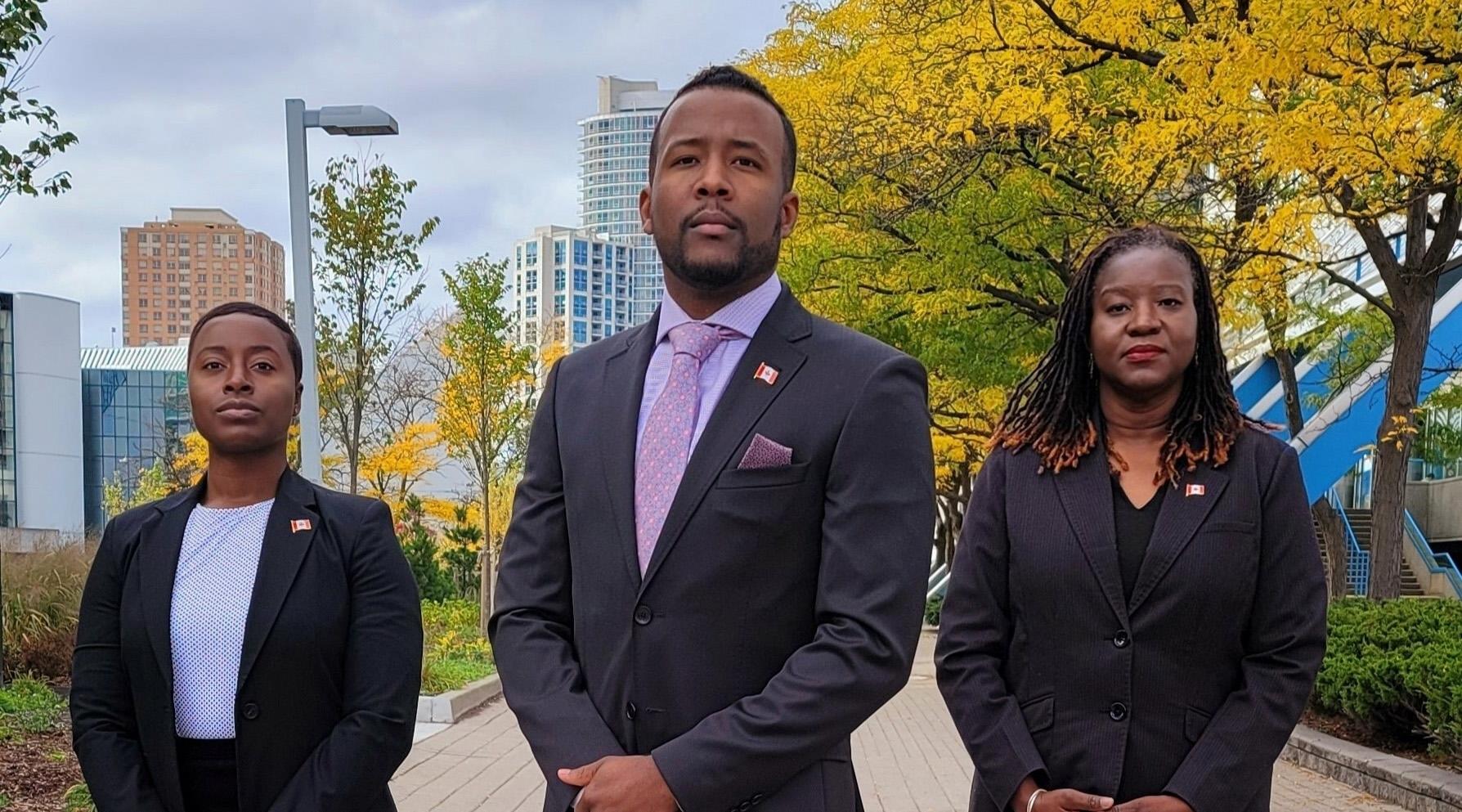Amnesty International Canada will contribute its expertise to court proceedings about the landmark Black Class Action lawsuit.
In a decision dated February 8, Federal Court Associate Chief Justice Jocelyne Gagné granted Amnesty International Canada’s request to deliver arguments in the Black Class Action case, which targets systemic anti-Black racism in the federal public service. In her ruling, Justice Gagné authorized the global human rights organization to make a 20-page written submission and oral arguments about international laws and treaties relevant to the case.
‘Canada has clear obligations under international law to promote equity, counter racism, and provide an effective remedy when people are subjected to systemic discrimination.’
Ketty Nivyabandi, Secretary General, Amnesty International Canada
“Canada’s duty to uphold federal workers’ rights goes beyond the Charter and domestic employment equity legislation,” said Ketty Nivyabandi, Secretary General of Amnesty International Canada’s English-speaking section. “As we will stress to the court, Canada has clear obligations under international law to promote equity, counter racism, and provide an effective remedy when people are subjected to systemic discrimination.”
Filed in 2020, the Black Class Action lawsuit alleges that the Public Service of Canada systemically discriminates against Black workers and has done so for more than 50 years. “There has been a de facto practice of Black employee exclusion from hiring and promotion throughout the Public Service because of the permeation of systemic discrimination through Canada’s institutional structures,” reads a key passage in the group’s statement of claim.
The submission includes heartrending testimony from about a dozen representative plaintiffs, many with decades of experience working for the federal government. The plaintiffs report enduring racist comments and other discriminatory treatment in the workplace and being repeatedly passed over for advancement opportunities despite their ample qualifications.
‘I have had to keep my head down… for me to get ahead’
“For my entire career at the agency, as a Black man I have had to keep my head down, and not speak out against injustices, for me to get ahead,” reported Daniel Malcolm, a 25-plus-year veteran employee at the Canada Revenue Agency. “I have seen how other Black employees are easily blacklisted when they speak out. This has affected me mentally. Our identities are not valued and our skin colour is the key factor in treating us differently.”
The Black Class Action is seeking the implementation of a Justice and Equity Promotional Plan for the hiring and promotion of Black employees, a mental health fund to support Black workers dealing with the devastating effects of discrimination, and damages for employees whose rights have been violated.
Amnesty International’s written submission in Black Class Action hearing due in April
Amnesty International Canada has until April 12, 2024 to file its written arguments to the Federal Court. Amnesty will support its submission with an oral presentation at a court hearing to decide whether the Black Class Action case will be heard on its merits. A date for the hearing has not been set.
The stakes at play are especially high for Black women, 2SLGBTQQIA+ people, and people with disabilities, Nivyabandi noted. “To understand how anti-Black racism functions in the workplace, we must address the distinct impacts on groups who experience multiple forms of discrimination because of their intersecting identities,” she said. “While we commend the government’s recent commitment to make changes to the Employment Equity Act, these former and prospective employees of the federal public service will find themselves most at risk if justice is not secured.”
Header photo caption: Three representatives with the Black Class Action Secretariat in Ottawa on an autumn day. (Black Class Action Secretariat)






















